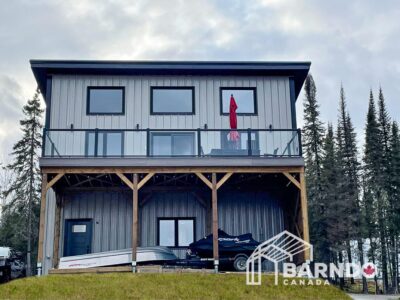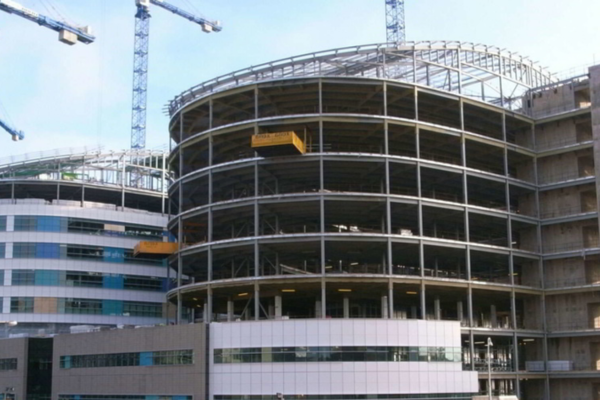
In the competitive world of real estate development, efficiency and cost management are critical to a project’s success. Building Information Modeling (BIM) has emerged as a transformative tool, helping developers streamline processes, reduce expenses, and enhance project outcomes. This article explores how real estate developers leverage BIM services to achieve these goals, with a focus on practical applications, benefits, and statistics to underscore the impact of BIM on the industry.
Understanding BIM and Its Importance
BIM is a digital representation of a building’s physical and functional characteristics. It creates a shared knowledge resource for information about a facility, forming a reliable basis for decisions during its lifecycle, from inception to demolition. For real estate developers, BIM offers a comprehensive approach to project management, coordination, and execution.
Enhancing Project Efficiency
- Improved Collaboration and Communication
BIM fosters better collaboration among all stakeholders, including architects, engineers, contractors, and clients. By providing a centralized platform where all project data is accessible, BIM ensures that everyone is on the same page, reducing misunderstandings and errors. According to a study by Dodge Data & Analytics, 55% of contractors reported that BIM significantly improved project coordination and collaboration.
- Accurate Planning and Visualization
BIM allows developers to create detailed 3D models of projects, enabling precise planning and visualization. This capability helps in identifying potential issues early in the design phase, thereby avoiding costly changes later. A report by McKinsey & Company highlighted that 75% of companies using BIM experience shorter project delivery times.
- Efficient Resource Management
With BIM, developers can better manage resources by tracking materials, labor, and equipment in real-time. This ensures optimal allocation and reduces wastage. Research by the National Institute of Building Sciences (NIBS) shows that projects utilizing BIM see a 30% reduction in material waste.
Cost Reduction Strategies
- Minimizing Rework and Errors
BIM’s detailed modeling capabilities help identify and resolve potential conflicts before construction begins. This proactive approach significantly reduces the need for rework, which can be a major cost driver. The Construction Industry Institute (CII) reports that rework can account for up to 12% of total project costs, but BIM can reduce this figure by 50%.
- Streamlined Construction Processes
By simulating construction processes, BIM enables developers to plan and execute projects more efficiently. This reduces downtime and accelerates project completion. According to the Boston Consulting Group, BIM can lead to a 20% decrease in construction time.
- Better Cost Estimation and Budget Management
BIM provides accurate cost estimates by integrating detailed project data with cost databases. This ensures that budgets are realistic and well-managed throughout the project lifecycle. A study by the UK BIM Alliance found that projects using BIM had a 3% cost savings on average compared to traditional methods.
Risentech’s Role in Enhancing Efficiency and Reducing Costs
At Risentech, we specialize in providing advanced BIM services tailored to the needs of real estate developers. Our expertise in BIM allows us to offer solutions that improve project coordination, enhance visualization, and streamline construction processes. By partnering with Risentech, developers can leverage our cutting-edge technology and industry knowledge to achieve better project outcomes and significant cost savings.
Real-World Applications of BIM in Real Estate Development
- Residential Projects
For residential developments, BIM helps in designing and planning complex multi-unit projects. It ensures that all design elements are coordinated, reducing the likelihood of costly changes during construction. Developers have reported a 35% reduction in project overruns due to BIM integration.
- Commercial Buildings
Commercial projects benefit from BIM’s ability to manage large-scale designs and intricate mechanical, electrical, and plumbing (MEP) systems. BIM’s clash detection feature identifies conflicts early, saving both time and money. Studies show that commercial projects using BIM see a 40% improvement in project completion times.
- Infrastructure Projects
Infrastructure developments, such as transportation hubs and public facilities, leverage BIM for its robust planning and management capabilities. BIM ensures that all stakeholders have a clear understanding of the project’s scope and requirements, leading to smoother execution and reduced costs. According to the American Society of Civil Engineers (ASCE), BIM adoption in infrastructure projects can reduce overall costs by 15%.
FAQs
- What is the primary benefit of using BIM for real estate developers?
The primary benefit is improved project efficiency through better coordination, accurate planning, and efficient resource management, leading to significant cost savings.
- How does BIM help in reducing construction costs?
BIM reduces construction costs by minimizing rework, streamlining processes, and providing accurate cost estimates, which helps in better budget management.
- Can BIM be used for all types of real estate projects?
Yes, BIM is versatile and can be used for residential, commercial, and infrastructure projects, offering tailored solutions for each type.
- What makes Risentech’s BIM services unique?
Risentech offers advanced BIM technology combined with industry expertise, providing customized solutions that enhance project coordination and efficiency, leading to substantial cost reductions.
- How do BIM services improve collaboration among project stakeholders?
BIM provides a centralized platform for all project data, ensuring that all stakeholders have access to the same information, which improves communication and reduces misunderstandings.
Conclusion
BIM services have revolutionized the real estate development industry by enhancing project efficiency and reducing costs. Through improved collaboration, accurate planning, and efficient resource management, BIM provides real estate developers with the tools they need to succeed in a competitive market. Companies like Risentech are at the forefront of this transformation, offering specialized BIM services that deliver tangible benefits.
As the industry continues to evolve, how will real estate developers further leverage BIM technology to stay ahead of the curve?











